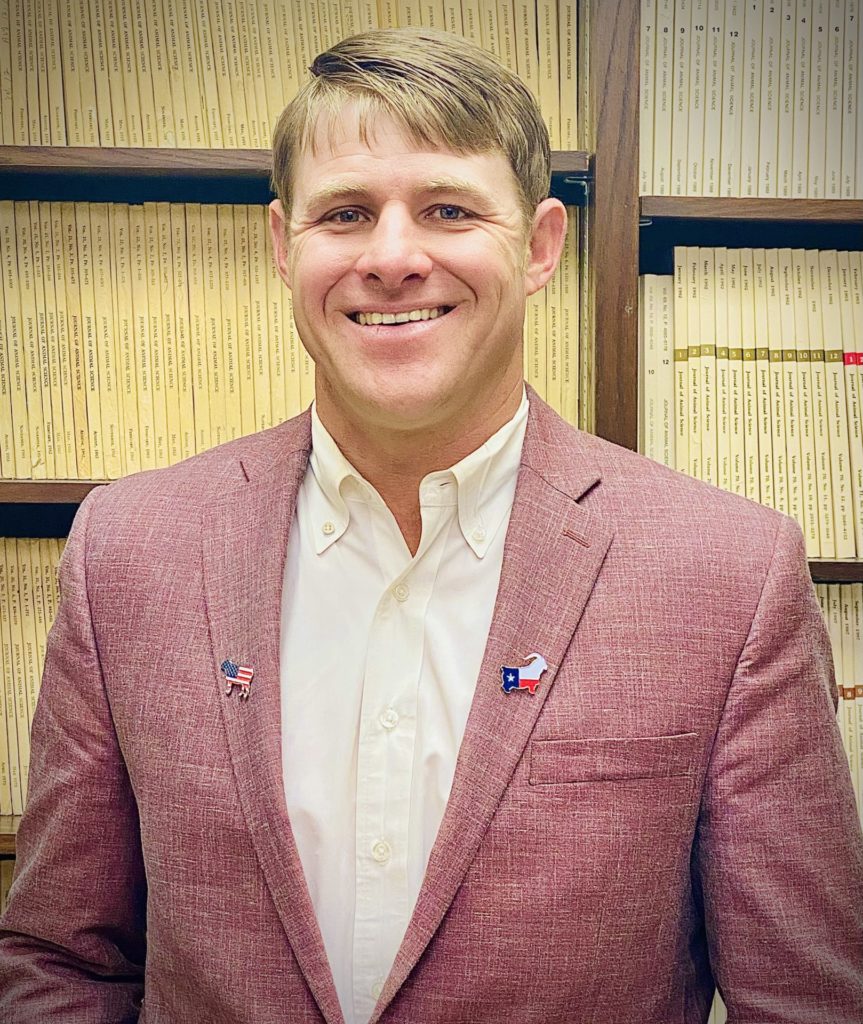Redden selected to take leadership of Texas A&M AgriLife center at San Angelo
Sheep and goat specialist accepts new role

Reid Redden, Ph.D., has been named director of the Texas A&M AgriLife Research and Extension Center at San Angelo effective March 1. He will have a split appointment between Research and Extension in this role.
Redden has served as part-time interim center director since early last year.
“Dr. Redden brings a passion for his research work in small ruminants into his new role as center director along with his service on several national committees and boards,” said Patrick J. Stover, Ph.D., vice chancellor of Texas A&M AgriLife, dean of the College of Agriculture and Life Sciences and director of Texas A&M AgriLife Research. “We are excited to have Dr. Redden continue Texas A&M AgriLife’s commitment to the West Texas sheep and goat industry with science-based, innovative research and education.”
Life focus on sheep and goat industry
Redden joined the Texas A&M AgriLife Extension Service as a sheep and goat specialist in 2015. He grew up on a diversified ranch in Utopia, where his family raised sheep, goats and cattle. His passion for small ruminants derived from raising and showing club lambs leading to his pursuit of higher education in animal science with an emphasis on small ruminants.
As center director, Redden will oversee faculty and researchers at both the San Angelo center and the Texas A&M AgriLife Research Center at Sonora. Redden will continue active research and extension programming in his new split appointment with the agencies.
“My life’s work has been focused on the sheep and goat industry, so to lead the San Angelo and Sonora research centers, which have been national leaders in this field, is a true honor and privilege for me,” Redden said.
At San Angelo, center staff manage land and livestock resources that span five counties and over 15,000 acres.
Research staff develop new technology and strategies to improve the management of range livestock, wildlife and native range environment. Research is conducted at San Angelo in Tom Green County and Sonora in Sutton and Edwards counties, on the Read Ranch in Crockett County, and the Carl and Bina-Sue Martin Research Ranch in Menard County.
AgriLife Extension staff facilitate transfer of knowledge in agriculture, family and consumer sciences, wildlife management and 4-H youth programs throughout West Texas. The center serves as headquarters for the 23 counties in AgriLife Extension’s West Central District.
“My goals are to work with our scientists to continue the traditions of what the centers have been known for, such as small ruminants, rangelands and animal fiber,” Redden said. “But also, to be responsive to the environmental and social changes that shift the need for scientific and technological advancement of agriculture and natural resource management in West Central Texas. In the coming months, we will develop an advisory board to aide our program development into the future. We welcome any input from the stakeholders in the region.”
Supporting West Texas sheep and goat industry
While serving as AgriLife Extension’s sheep and goat specialist, Redden’s programs have focused on demonstrating technologies to help the state sheep and goat industry and developing the next generation of ranchers. He also supports the research community by acting as a liaison with commercial and industry partners. He was a founding member and oversees the only research and outreach program at a public institution specifically focused on livestock guardian dogs to prevent predation.
“All of these are strategic components as Texas A&M AgriLife further builds the West Texas sheep and goat industry with science-based, innovative research and education,” Stover said.
As an AgriLife Extension specialist, Redden and his team have built a large social media and YouTube following while also providing educational information through traditional methods such as monthly industry columns.
Notably, Redden has worked with other AgriLife Extension staff to host the nationally recognized Texas Sheep and Goat Expo. His programs target providing solutions to current industry problems facing sheep and goat raisers, mitigating predator losses, and improving integrated parasite control.
Redden earned his doctoral degree in ruminant nutrition from Montana State University, his master’s degree in reproductive physiology from New Mexico State University and bachelor’s degree in animal science from Texas A&M University.


